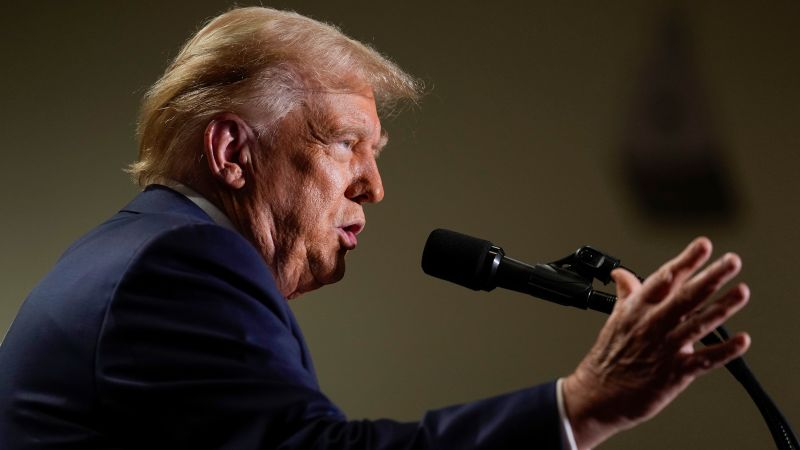Former President Donald Trump has been making personal attacks on Vice President Kamala Harris’ mental state at recent rallies, calling her mentally impaired and attributing perceived failures in the Biden administration to her supposed mental disabilities. Some Republicans, including Trump ally Senator Lindsey Graham, have urged the former president to focus on important issues like the economy, border security, and foreign policy, rather than engaging in personal attacks. Others, like House Majority Whip Tom Emmer and former Maryland Governor Larry Hogan, have condemned Trump’s insults against Harris as not only disrespectful to the vice president but also to individuals with mental disabilities.
Despite the criticism from some GOP allies, there are those like House Speaker Kevin McCarthy who support Trump’s attacks on Harris. McCarthy defended Trump’s remarks by referencing a misrepresented statistic on immigration policy and questioning Harris’ stability. The Trump campaign’s communications director, Steven Cheung, also doubled down on the criticism, calling Harris unfit to serve as president and focusing on her record on immigration. Harris’ campaign has responded by accusing Trump of offering nothing inspiring to the American people and instead promoting darkness.
The divide among Republicans over Trump’s personal attacks on Harris highlights a larger issue within the party as they struggle to maintain a united front. While some members, like Senator Graham, acknowledge Harris’ liberal policies but refrain from questioning her mental state, others continue to support Trump’s combative approach. This tension could have implications for the future of the GOP as they navigate through the aftermath of Trump’s presidency and determine the direction of the party moving forward.
The controversy surrounding Trump’s comments on Harris also underscores the ongoing debate about the use of divisive rhetoric in political discourse. Critics of Trump, like former Governor Larry Hogan, argue that such attacks are not only insulting but also perpetuate harmful stereotypes about mental disabilities. By contrasting Trump’s approach with the calls to focus on policy issues, Republicans are grappling with how to maintain a strong message while avoiding damaging personal attacks that could alienate voters.
As the midterm elections approach, the GOP faces the challenge of balancing support for Trump with the need to appeal to a broad base of voters. While some party members are willing to distance themselves from Trump’s insults, others, like House Speaker McCarthy, continue to stand by the former president. This internal struggle could shape the party’s messaging and strategy in the coming months as they seek to regain control of Congress and potentially set the stage for the 2024 presidential election. In the midst of these debates, the focus remains on how to effectively communicate policy positions without resorting to harmful personal attacks that could undermine the party’s credibility and appeal to voters.


